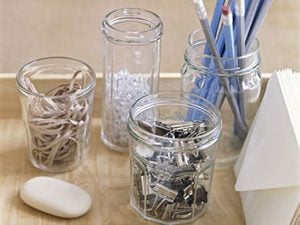Clear Clutter, Feel Happier: Why Such a Tiny Move Can Recharge Your Life
Updated: May 23, 2023
A messy life can get in the way of your making good habits and reaching your goals, argues Gretchen Rubin in her new book.
 I’m constantly surprised by the degree to which, for most people, outer order contributes to inner calm. A crowded coat closet or an overflowing in-box seems like a trivial thing—and it is trivial—yet an orderly environment makes me feel more in control of myself. If this is an illusion, it’s a helpful illusion.
I’m constantly surprised by the degree to which, for most people, outer order contributes to inner calm. A crowded coat closet or an overflowing in-box seems like a trivial thing—and it is trivial—yet an orderly environment makes me feel more in control of myself. If this is an illusion, it’s a helpful illusion.
Outer disorder may act as a “broken window.” Social scientists introduced the broken windows theory of crime prevention was introduced in the 1980s after they observed that when a community tolerates disorder and petty crime, such as breaking of windows, as well as graffiti, turnstile jumping, or drinking in public, people are more likely to commit more serious crimes. As a law enforcement theory, it’s controversial; but whether or not it’s true on a community-wide level, it’s true on a personal level.
For many people—like me—a clean, well-maintained environment helps to foster a sense of self-command, which in turn makes it easier to maintain good habits.
In law school, I happened to visit the group houses of two friends in one day, and I remember being struck by the difference in their kitchens. At the first stop, the kitchen was orderly. My friend pulled a box of crackers out of the cabinet and some cheese from the fridge, and both packages were closed and neatly stowed away. When I visited the second friend, she said, “Help yourself to anything.” Several open bags lay scattered on the counter—pretzels, chips, and Entenmann’s mini-chocolate-chip cookies—and as we sat talking at the kitchen table, other people wandered through, and everyone grabbed a few handfuls. “If I lived here, I could eat an entire box of cookies in a day,” I thought, “and not even notice.” We were all young and single, and no one wanted to eat junk food, but the habits of that house made it much harder to resist.
People get a real lift when they put things in their place, tackle nagging tasks, clear surfaces, and get rid of things that don’t work or aren’t used. This surge of energy makes it easier to ask more of ourselves, to use our self-control, and to stick to a challenging habit. Also, accomplishing small tasks boosts our sense of “self-efficacy.” The more we trust ourselves to follow through on our own commitments, the more likely we are to believe that we can keep an important habit.
Of course, it’s also true that some people thrive in an atmosphere of disarray. For them, an uncluttered environment doesn’t help—or may even stifle—their productivity, their creativity, and their peace of mind.
But for me, messy surroundings are a broken window that makes me feel less productive and creative, not more. When my office is crammed with open books, scribbled notes, half-empty coffee cups, and uncapped pens, I feel overwhelmed. Clearing my space clears my mind. Find out the strengths of messy people.
Each person has different broken windows. An unmade bed is a common broken window, which is why “Make the bed” is one of the most popular happiness-project resolutions, and in fact, as Charles Duhigg points out in his fascinating book The Power of Habit, the habit of bed making is correlated with a sense of greater well-being and higher productivity.
Other common broken windows include having a messy car; accumulating piles of laundry or trash; not being able to find important items, like a passport or a phone charger; hanging on to stacks of newspapers, magazines, and catalogs; wearing pajamas or sweats all day; or not shaving or showering.
For my husband Jamie, as he often emphatically reminds me, dirty dishes left overnight are broken windows; for me, if the dishes make it into the sink, life feels under control.
Reprinted from Better Than Before: Mastering the Habits of Our Everyday Lives Copyright © 2015 by Gretchen Rubin. Published by Crown Publishers, an imprint of Random House LLC.
Motivated to clean up? Here’s some help:
13+ Secrets Professional Organizers Won’t Tell You, For Free
12 Tiny Storage Hacks to Feel Instantly More Organized
Spring Closet Cleaning: 14 Ideas From Professional Organizers